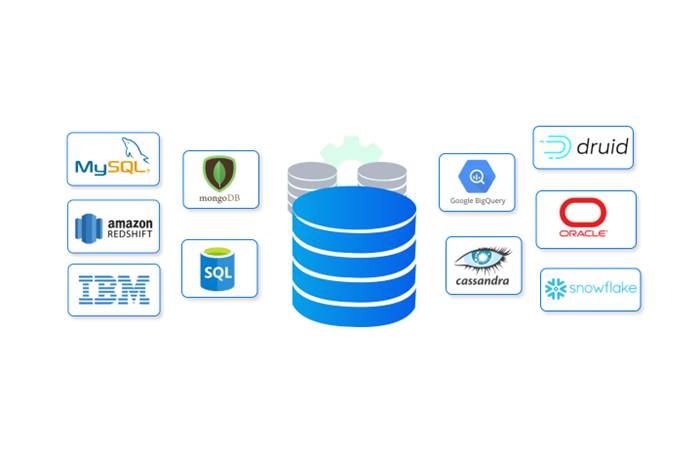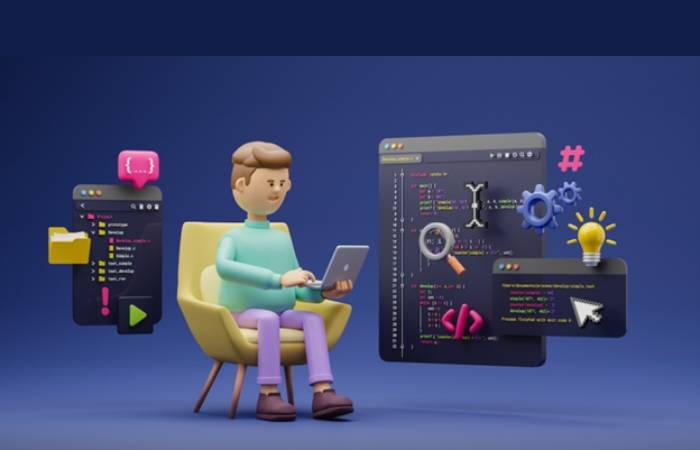Table of Contents
Introduction
This contemporary and constantly evolving field of Computer Science necessitates advanced technical know-how, productive work habits, effective teamwork, and the flexibility to keep up with emerging technological advances. So, if you are aiming for a career in technology, you’ve arrived at the right place.
In this article, we highlight the most essential and crucial skill sets for computer engineering practitioners to help begin your journey in this exciting field.
Technical Skills
1. Master Programming Languages
Programming languages are unquestionably necessary for a career in Software Engineering, but this probably goes without saying. Highlighting your knowledge of several programming languages demonstrates your readiness to be comfortable with any technology stack and your aptitude for picking up new languages. It also implies that you have an in-depth understanding of data structures and algorithms. You should be proficient in a decent number of the most popular languages. We recommend these top 5 languages currently leading the development industry:
- Java – For Enterprise Software Development
- Python – General Scripting and working with data automation
- C++ – Desktop Applications and System Architecture
- JavaScript – Web Development and Frameworks
- PHP – Server-Side Development
Read about the Top Programming Languages and know how they will shape the future of technological breakthroughs.
2. Cyber Security
Security is of paramount importance in the digital age and flaws in application should be carefully patched to prevent huge losses and data theft. The following abilities will help you become qualified for entry-level and higher IT security professions, such as information security analyst. The topics listed below will serve you very well in kick starting your career at a tech support, networking, or systems management occupations.
- Knowledge of network, software, and physical security
- Data protection, encryption, and threat analysis
- Functioning of networking devices such as routers and firewalls
- Penetration testing and ethical hacking
If you want to learn cyber security from scratch you can check out Beginner-friendly Cyber Security online course is designed to give you a foundational look at today’s cyber security landscape and provide you with the tools to evaluate and manage security protocols in information processing systems.
3. Cloud Technologies
Skills in cloud computing are in demand, from creating cloud services to maintaining it. Jobs like cloud administrator, architect and developer are very trending and progressive for your professional life. Understanding the following cloud – based services is advantageous. Pick any one of the “big three” and you can hit the ground running:
- AWS
- Google Cloud
- Microsoft Azure

Confused about starting your journey in cloud? This article will help clarify all your doubts related to Cloud Computing.
Additionally, you can read about Cloud Service Providers and decide which is the right one for you!
4. UI and UX
UI Design is the process of designing user interfaces for software and applications with an emphasis on aesthetics or style. UX describes how a user must engage with the components of a website or technical product. It is particularly beneficial for organizing navigation, content and layout. Learning the following topics would prove beneficial and aid you in multitudes of avenues.
- 3D Graphics for Mobile UI and Web Kits
- Animated Graphics
- Virtual Reality Basics
- Color Schemes and Modern Approaches to Design
You can acquire a product design certification online from Uxcel. Their certification program tests your skills and your understanding of UX design principles. A UX design certification is a significant advantage when looking for your next design opportunity. Uxcel certifications follow strict industry standards and ensure that all certification holders understand core UX principles by role.
5. Web Technologies
The creation of web content, client-side and server-side scripting, network security configurations, and front-end development are all part of the web development cycle. This is done to ensure the best possible features, user friendliness, and speed of the website. It is a prominent aspect of your developer career, and it would be to your advantage to be experienced in web development. We recommend learning the following topics to get ahead of the curve: –
- HTML, CSS, JS
- Frameworks like React, Express, Laravel, and Node.js
- Responsiveness
- Search Engine Optimization (SEO)
- Web Hosting and Deployment
Boost your knowledge of Web Development with this Beginner friendly Full Stack development Course with a certificate.
Learn more about the Hottest Web Technology Trends that are paving a path towards modern web innovation.
6. Database Architecture
For an application to scale, the database should be able to efficiently handle massive amounts of data. This is where database administrators and designers come into the picture. They ought to be familiar with database administration and development. They are tasked with ensuring that data is available and consistent across systems. They are also responsible for providing data-storage and retrieval services for large amounts of structured information and writing programmatically script to access databases. The following are the necessary skills for a database developer:
- SQL Queries
- DB Theory and Schema Design
- Prototyping and ERD tools
- Object Relationship Mapping (ORM)
- Relational Database Management Systems

7. Testing & Debugging
- Testing: It not only shaves off valuable development cycles, but it also improves your understanding of the logic and flow of your code. Development times can be cut by hours by being able to establish breakpoints, step into, and step over active functions. The creation of a module may be tested at any point, including throughout the requirement gathering, UI design, analysis of algorithms, implementation, and integration stages. Testing for final modules attempts to show accuracy, whereas testing for debugging mostly aims to find faults. The selection of testing methodologies is significantly impacted by this distinction.
- Debugging: Execution testing and code rectification are two steps in the cycle of debugging. Debug testing serves a different purpose than testing of the completed module. Peer reviews, code tracing, and correctness proofs can all be used in debugging processes.
Leadership and Soft Skills
1. Being a Team Player
Having strong sense of teamwork is crucial for working effectively with peers and professionals. Taking an active part in hackathons or other team-based activities where you must cooperate with others to accomplish a particular objective to hone your teamwork skills is a good exercise. You need to communicate instructions and expectations clearly both orally and in writing to keep everybody on your team on the same page and moving swiftly toward common goals. You can find innovative ideas from various teams, find ways to involve more stakeholders in technical discussions, and position yourself for leadership success by doing this. The takeaway from all this is that you must possess excellent communication and social skills.
2. Problem-solving
Computer engineers solve complex issues when they debug programs or pinpoint bugs. For computer engineers, it’s crucial to be able to pinpoint the problem and suggest several potential fixes. Computer engineers need to have solid research strategies to perform and analyze things while they are uncertain about how to do something or what approach may work best. You ought to be able to solve problems quickly and effectively if you have strong problem-solving abilities. Being capable of managing responsibilities on your own is highly valued.

3. Project Management
IT professionals frequently need project management abilities to manage and lead IT teams when finishing work projects, regardless of their technical expertise (like programming and development). Software engineers typically depend on their capacity for planning, creating, and beginning technical projects in order to succeed in their positions. This includes the capacity to strategize, budget, foresee results, and manage risks. We recommend learning about fulfilling organizational roles, Kanban Board, Agile and Scrum workflows and Project Management tools like Slack and Jira.
Conclusion
Taking on programming projects can help you develop your practical abilities, learn more, build relationships with others, and comprehend the fundamentals of topics that are even beyond the field of your knowledge
Looking to build professional skills and land an awesome Data Science job?
Take your first step by registering for Board Infinity’s premiere Data Science Learning Path, which is in line with competency criteria created by NASSCOM. Work on real-world industry projects, study SQL, Tableau, Python, and more with one-on-one guidance from subject-matter experts, and much more. . Board Infinity invites you to read our articles and join our bootcamps, and courses to better prepare yourself for the future.

